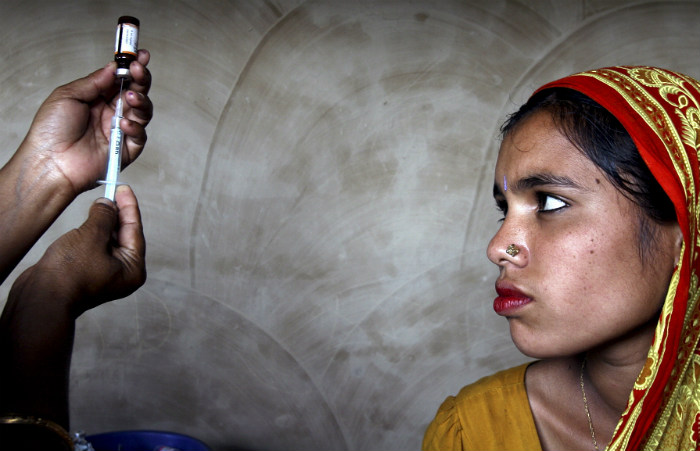By: Mike Ives
Send to a friend
The details you provide on this page will not be used to send unsolicited email, and will not be sold to a 3rd party. See privacy policy.
Scientists in Singapore say they have found a potent antibody to fight the second of four types of viruses that cause dengue fever, bringing possible treatments closer.
In a study published in the journal Science earlier this month (3 July), researchers from the Duke-NUS Graduate Medical School in Singapore show which sites on the virus stimulate the immune system to develop effective antibodies in mice.
“These sites, when incorporated into a vaccine, will likely stimulate a protective response in recipients,” making this antibody a candidate to develop treatments for humans, says Shee-Mei Lok, a lead researcher in the study.
Nearly 400 million people catch dengue fever every year, a 2013 Nature study estimates, but there is no vaccine or treatment. The disease is endemic across parts of Latin America, South-East Asia and the Pacific islands.
Four closely related types of viruses can cause the disease. Infection with one type generates antibodies that can lead to more severe disease in case of a later infection with another type.
“It should be possible to stop or slow down a dengue infection in mid-course using a strong neutralising antibody, but, as a therapeutic, there are a lot of issues to be solved.”
Scott Halstead, Dengue Vaccine Initiative
This is because the antibodies may fail to neutralise these new viruses, instead helping them to infect cells and reproduce undetected.
In a statement to reporters, Lok says the new antibody could be used in a ‘cocktail treatment’ combining four antibodies — one against each type. She adds that her lab has already found antibodies that neutralise types 1 and 3 of the virus, and are working to find an antibody against type 4.
But Scott Halstead, an advisor to the international consortium Dengue Vaccine Initiative, sounds a more cautious note.
“There are already a number of ‘therapeutic’ dengue antibodies in the literature. I guess it should be possible to stop or slow down a dengue infection in mid-course using a strong neutralising antibody, but, as a therapeutic, there are a lot of issues to be solved,” he told SciDev.Net in an email.
Another problem that makes it difficult to fight dengue is that the disease’s global spread has increased the genetic diversity of the virus, says another study carried out at the same university. This diversity means the virus may have a higher potential to cause epidemics, says this second paper, which was also published in Science this month (2 July).
The paper examines a 1994 dengue outbreak in Puerto Rico, during which a new strain of dengue virus type 2 emerged and replaced an older strain. To do this, the new strain produced high levels of viral genetic material that inactivated proteins needed for the immune response, the authors say.
Understanding what allows the dengue virus to spread more efficiently would enable governments to direct public health resources to at-risk regions, lead researcher Eng Eong Ooi says.
References
Guntur Fibriansah and others Cryo-EM structure of an antibody that neutralizes dengue virus type 2 by locking E protein dimers (Science, 3 July 2015)
Gayathri Manokaran and others Dengue subgenomic RNA binds TRIM25 to inhibit interferon expression for epidemiological fitness (Science, 2 July 2015)
Samir Bhatt and others The global distribution and burden of dengue (Nature, 7 April 2013)














